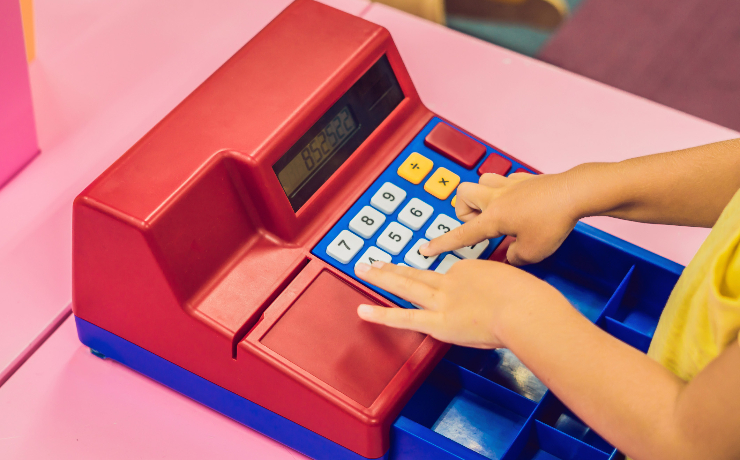10 Smart Money Hacks

By Mary LevitskiDecember 24, 2021
Ever wonder how the bankers bank? We share tried-and-true money-management tips from employees around RBC.
This article was originally published in RBC Direct Investing’s Inspired Investor magazine.
They’re analysts. They’re number crunchers. They’re data professionals. They’re the people who make RBC run like a well-oiled machine, and they bring the same smarts and discipline to their own personal banking. Here are some helpful tips we’ve picked up from our money-minded colleagues.
1. Rename Your Accounts
You’ll be more inclined to put cash into an account called Forever House Fund, Destination: Hawaii or even Rainy Day Fund than one with a generic name like Savings. One resident math whiz says the simple act of naming his accounts has made his goals more tangible, which makes him feel more accountable to them.
2. Audit Your Bills
It may sound tedious and obvious, but one digital content lead swears by scrutinizing expenses line by line. With a demanding career, three kids and a dog, it can be hard to keep track of costs. Combing through phone bills, vet receipts, car lease agreements and the like has proven to her time and again that hidden fees do crop up, promotions can expire unannounced, clerical errors may occur, and so much more.
3. Automate and Adjust
Several RBC-ers have arranged automatic withdrawals from their chequing account to contribute to their savings or investing account on payday. But don’t just set it and forget it, says one. “Whenever I’m lucky enough to get a raise, I increase my auto-deposit by the same percentage.”
4. Round It Down
One colleague keeps tabs on his cash using his mobile banking app. He’s made a habit of rounding his chequing account balance down to the nearest $5 and moving the rest to his savings account. He says it’s a fun and easy way to save, and those dollars and cents have steadily accumulated.
5. Put Your Diet on a Spending Diet
Many of us spend more money on dining out than we’d like to admit. To cut back, one colleague deleted all five of the food delivery apps from her phone. “I’ve easily saved $500 a month as a result,” she says. Another co-worker only buys food when she’s eating with another person. That means no store-bought coffee unless she’s meeting up with someone in person, and no takeout on Friday evenings unless she’s having a date night with her partner. As she says, “Paying $12 a day to eat a mediocre lunch salad alone at my desk is too sad to justify the cost.”
6. Spend Consciously
Before one client experience specialist makes a purchase, be it a cup of coffee or a family vacation, he thinks of the planet. Often, he decides not to buy. “Considering the impact of what I buy on the climate has amounted to a more sustainable way of bringing up my kids,” he says. Sticking to your values may help you curb your spending –and minimize your environmental footprint, too.
7. Reap the Rewards
All those points, miles and cash rewards add up. Here’s our resident math whiz again: “My gas rewards program, for example, saves three cents a litre, which is about a buck a week.” His overall rewards total upwards of $400 a year, he says, which is enough to fund a weekend getaway or a significant portion of a small vacation.
8. Get Low
As you might guess, most in this group do not carry a balance on their credit cards. If they do need to borrow funds – or, as one executive puts it, “to ensure I don’t miss out on greater opportunities” – they favour lower-interest lending vehicles, like a mortgage or line of credit.
9. Set Sub-goals
In addition to setting year-end goals, one operations group almost unanimously endorses setting monthly targets. Add up your known income (such as salary and dividends). Then subtract the known liabilities (like bills, kids’ activities and groceries). From there, forecast what amount ought to remain at the end of each month for the year. Assess monthly whether or not you’re on target.
10. Talk About It
Last but definitely not least, we’ve learned the value of discussing finances with others. Even if you don’t have a banker on speed dial, you likely have financially savvy people in your network. Pick their brains. Your bank accounts may thank you.
Things our lawyers want you to know
This article is intended as general information only and is not to be relied upon as constituting legal, financial or other professional advice. A professional advisor should be consulted regarding your specific situation. Information presented is believed to be factual and up-to-date but we do not guarantee its accuracy and it should not be regarded as a complete analysis of the subjects discussed. All expressions of opinion reflect the judgment of the authors as of the date of publication and are subject to change. No endorsement of any third parties or their advice, opinions, information, products or services is expressly given or implied by Royal Bank of Canada or any of its affiliates.




